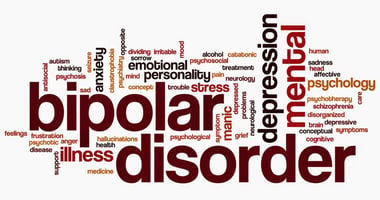Benzodiazepine use in patients with bipolar disorders is associated with greater illness complexity...
Benzodiazepine Prescriptions High Among the Elderly, Study Finds
 |
Adults over 65 were also more likely to have a long-term prescription for a benzodiazepine and were more likely to have their prescription written by a nonpsychiatrist; psychiatrists wrote less than 6 percent of benzodiazepine prescriptions for those aged 65 to 80.
These findings were published in JAMA Psychiatry on December 17.
Benzodiazepines can be effective in the short-term for treating anxiety or insomnia, but their risk of dependence and adverse effects such as cognitive impairment and loss of balance has led to expert recommendations to limit their use, especially in elderly people.
“It was alarming to find the highest rates of benzodiazepine use among the group with the highest risks,” said study author Michael Schoenbaum, Ph.D., of the Office of Science Policy, Planning, and Evaluation at the National Institute of Mental Health. “Given that safer, effective options are available for anxiety and insomnia, it’s hard to make a clinical argument for these results.”
Schoenbaum proposed that clinicians should restart a dialogue on the usage of benzodiazepines in the elderly, though a commentary accompanying the study suggested even stronger changes.
“It may be time to act, perhaps first by restricting the prescription of benzodiazepines to psychiatrists. In the study, psychiatrists seemed to prescribe them properly. The next step is to consider them the same as other dangerous addictive substances and put them on a tight dispensation schedule using limited-duration prescriptions with no refills,” the commentary authors wrote.
To read about the potential cognitive harm of benzodiazepine use, see the Psychiatric News article "Long-Term Use of Benzodiazepines May Be Linked to Alzheimer’s.
(shutterstock/khemporn tongphay)





